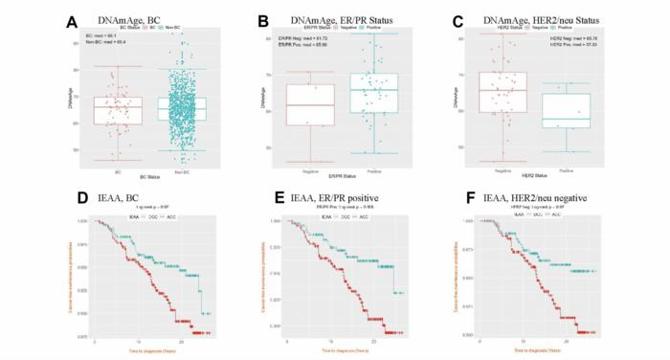Bioengineer
1M
257

Image Credit: Bioengineer
Epigenetic Aging and DNA Methylation: Emerging Tumor Markers in Breast Cancer Research
- A recent study published in Aging suggests that a simple blood test can assess breast cancer risk by looking at DNA methylation patterns that are part of epigenetic aging.
- The study observes that women whose biological markers indicate that they are aging more rapidly are more likely to be diagnosed with breast cancer.
- The research underscores the need for tailored approaches to breast cancer risk assessment in different populations of women, specifically postmenopausal non-Hispanic white women.
- The study highlights the role estrogen plays in epigenetic aging and cancer susceptibility, meaning that hormonally driven interventions have complex relationships with cancer risk.
- Obesity is linked to accelerated biological aging, thereby further heightening the cancer risk in obese women, and hormone therapy’s effects vary depending on the regimen’s type and duration.
- The research potentially offers an early detection strategy, providing women with actionable insights into their health that can empower them to take proactive steps in mitigating risk through healthy lifestyle changes.
- The study concludes by urging further validation and research into this innovative strategy's potential applications in routine health screenings, managing breast cancer and enhancing prevention strategies.
- The use of epigenetic markers in cancer risk evaluation offers a transformative approach to managing breast cancer, leading to safer, more informed health practices for women worldwide.
Read Full Article
15 Likes
For uninterrupted reading, download the app